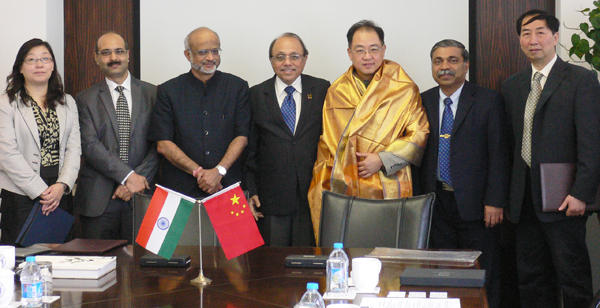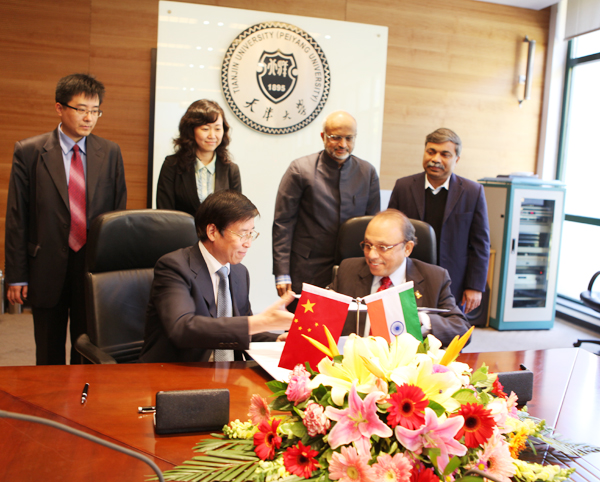
Manipal, November 5: Manipal University which has tie-ups with a number of overseas universities, broke ground in China last week signing agreements with Shanghai's Tongji and Tianjin Universities.
A delegation from Manipal University comprising Vice Chancellor Dr K Ramnarayan, Registrar, Dr Gopalakrishna Prabhu and Honorary Director, UNESCO Peace Chair at Department of Geopolitics, Prof M.D.Nalapat visited these universities in June and last week.
Dr K Ramnarayan signed the documents on behalf of Manipal University, whereas, Dean of Politics and international Relations, Prof Xia Liping was the signatory for Tongji University and Prof Li Jiajun did on behalf of Tianjin University.
“The MoUs are for mutual, comprehensive partnerships in the areas of student exchange, faculty exchange, joint degrees, twinning programmes, and the exchange of research scholars and postdoctoral fellows,” said Vice-Chancellor Dr Ramnarayan. It will also facilitate exchange of academic publications, materials and information.
It is a step towards Manipal University's long-term plan of opening the first ever campus of an Indian university in China. “Eventually we would like to see free creative flow both ways, as we have between India and the United States,” Dr. Ramnarayan said. “For some reason, we have ignored the potential of China, and that is something we want to tap”. “Joint research activities are going to be important also,” he said.
Tongji University is known for its strong architecture programme and Tianjin for engineering. In future, Manipal University would like exchanges in these two fields as well. As of now the understanding is going to be in the field of Geopolitics and International Relations.
The agreements are indicators of Manipal University's desire to enter into China's education sector. The university is in talks with Chinese officials to open a campus there. Manipal already has campuses in Dubai, Nepal, Antigua and Malaysia.

Dr. Ramnarayan said he was keen to bring Chinese students to India, as an increasing number of their students were pursuing higher-studies overseas, China was beginning to recognize the qualities of Indian universities. The point he made was that four students could study in India for the cost of one student going to the U.S. or Europe.





Comments
Add new comment